Donald Trump
Trump Wants Teresa Goody Guillén to Head the SEC
Published
5 months agoon
By
admin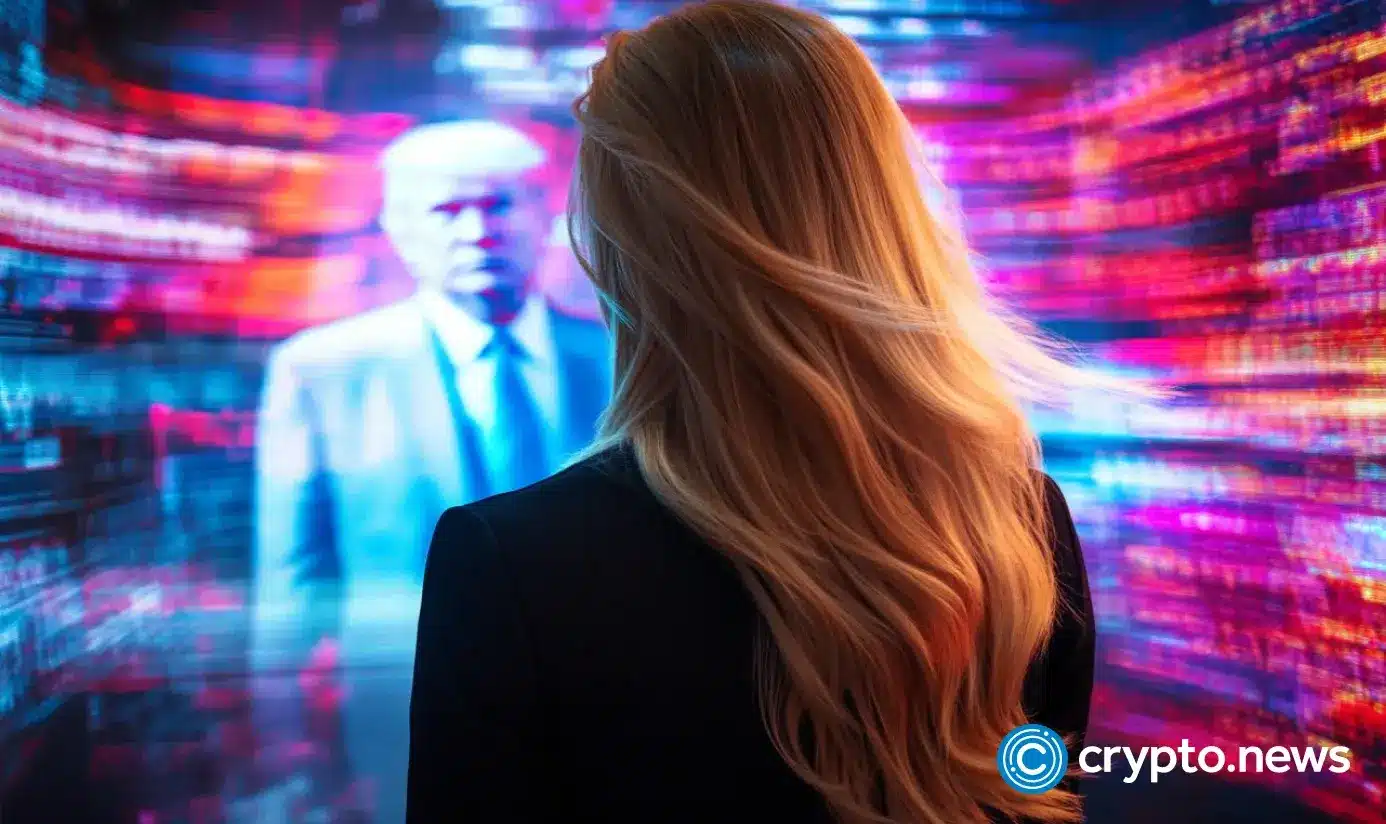
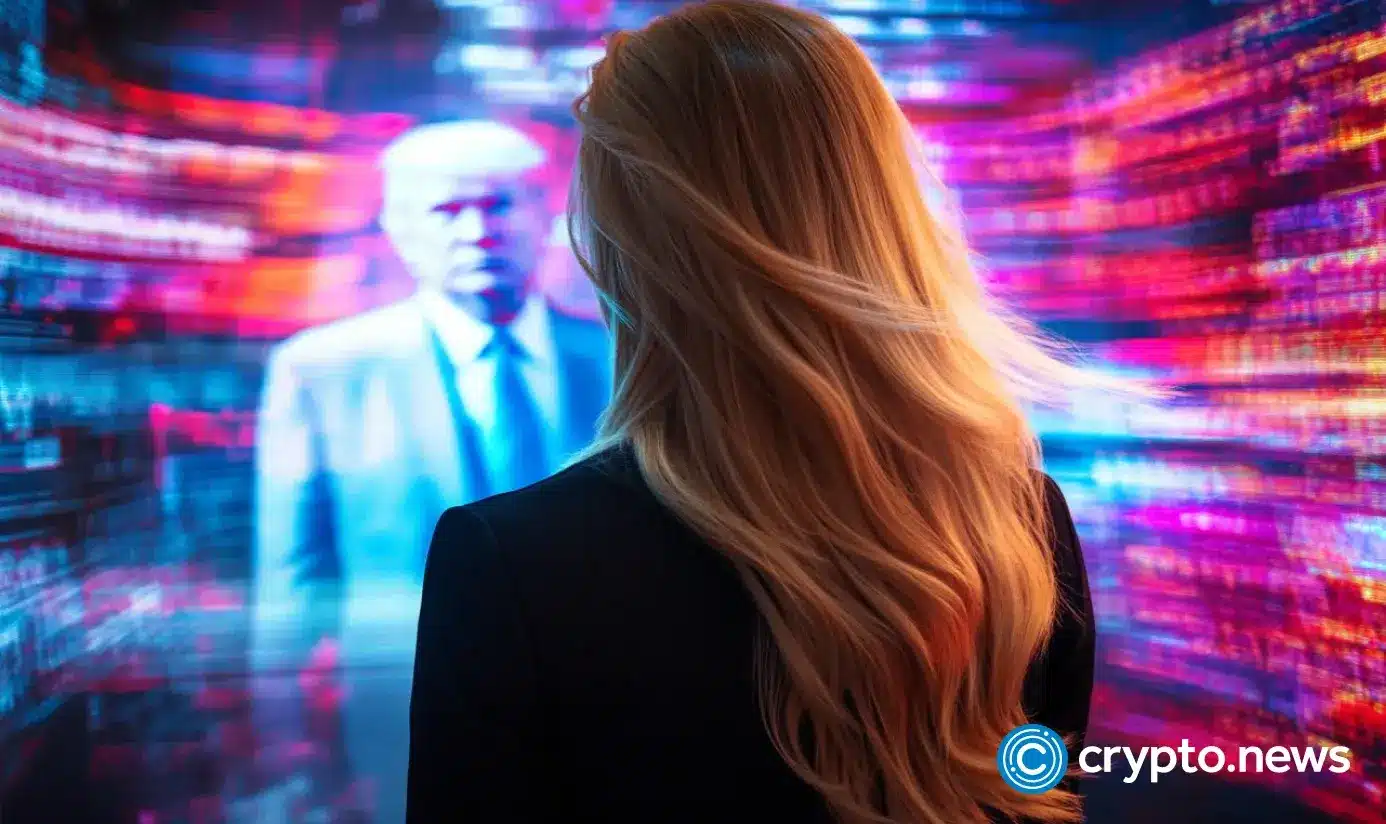
Soon-to-be President Donald Trump is looking at Teresa Goody Guillén, an experienced Securities attorney with a strong background in traditional finance and blockchain regulation, as a potential candidate to head the U.S. Securities and Exchange Commission.
If chosen, her appointment could mark a significant shift in the agency’s regulatory stance compared to the current ‘anti-crypto’ approach under Gary Gensler.
The Trump administration has expressed its intention to move away from what it coined as “regulation by enforcement” in the cryptocurrency space. During his campaign, Trump promised to fire Gensler on his first day in office, and reports suggest that Gensler is already getting ready to resign before Trump takes office, for a second time, on Jan 20.
Trump’s team is said to be looking for someone who is knowledgeable about digital assets and can soften the SEC’s stance on harsh crypto regulations until Congress offers a more definitive legislative direction. The blockchain and finance moguls see Goody Guillén as a perfect fit for this vision. Her supporters point out her firm grasp of security law and thoughtful approach to regulation. Guillén’s unique blend of experience with the SEC and her advocacy of blockchain companies has earned her considerable backing from both crypto leaders and traditional finance executives.
Goody Guillén is a partner at BakerHostetler, where she co-heads the firm’s blockchain division. According to her LinkedIn, she worked in the SEC’s office as the general counsel from 2009 to 2011. She then collaborated with former SEC Chair Harvey Pitt to provide counsel on enforcement issues.
This combination of insider knowledge and advocacy against the SEC’s enforcement actions has made her an ideal candidate for the position, especially in the wake of Trump’s team looking for a pro-crypto regulator to revamp the SEC. Brendan Playford, co-founder of the decentralized data provider Masa, referred to her as “an instant change-maker” who has the potential to restructure the finance industry.
Goody Guillén is one of many competitive groups of candidates for the SEC Chair position, which also includes major figures like Robert Stebbins from Willkie Farr & Gallagher, Brad Bondi from Paul Hastings, former SEC commissioner Paul Atkins, and Brain Brooks, who previously served as Acting Controller of the Currency.
The Trump transition team is moving quickly this time around, and it is planning to announce the new SEC chair before Thanksgiving, as reported by CoinDesk. This urgency brings to light the administration’s focus on rapidly changing financial regulations. If Goody Guillén is appointed, her leadership could lead to significant shifts in how the SEC handles crypto regulations. With the Trump administration already making some bold and controversial picks for Cabinet positions, many are keeping a close eye, as this could mean a make-or-break for regulatory reforms in the next four years.
Source link
You may like


Dogecoin Follows This Blueprint, Says Crypto Analyst


Metaplanet Buys Additional ¥3.8 Billion Worth Of Bitcoin


Crypto Trader Unveils Massive Bitcoin Price Target Amid Extended BTC Bull Market – Here’s His Outlook
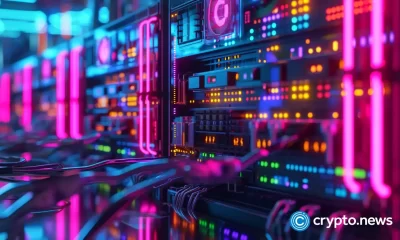

Is it possible to make $1m with crypto?


Japan’s Metaplanet Buys Another $26M in Bitcoin Amid Tariff Market Uncertainty
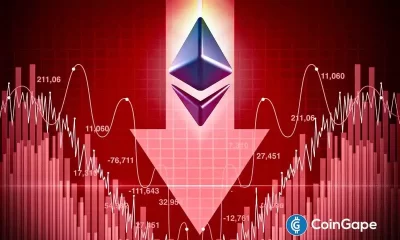

Has Ethereum Price Bottomed? 3 Reason Why ETH Could Crash More
Changpeng Zhao
Binance preps US comeback, courts Trump for help: report
Published
1 day agoon
April 13, 2025By
admin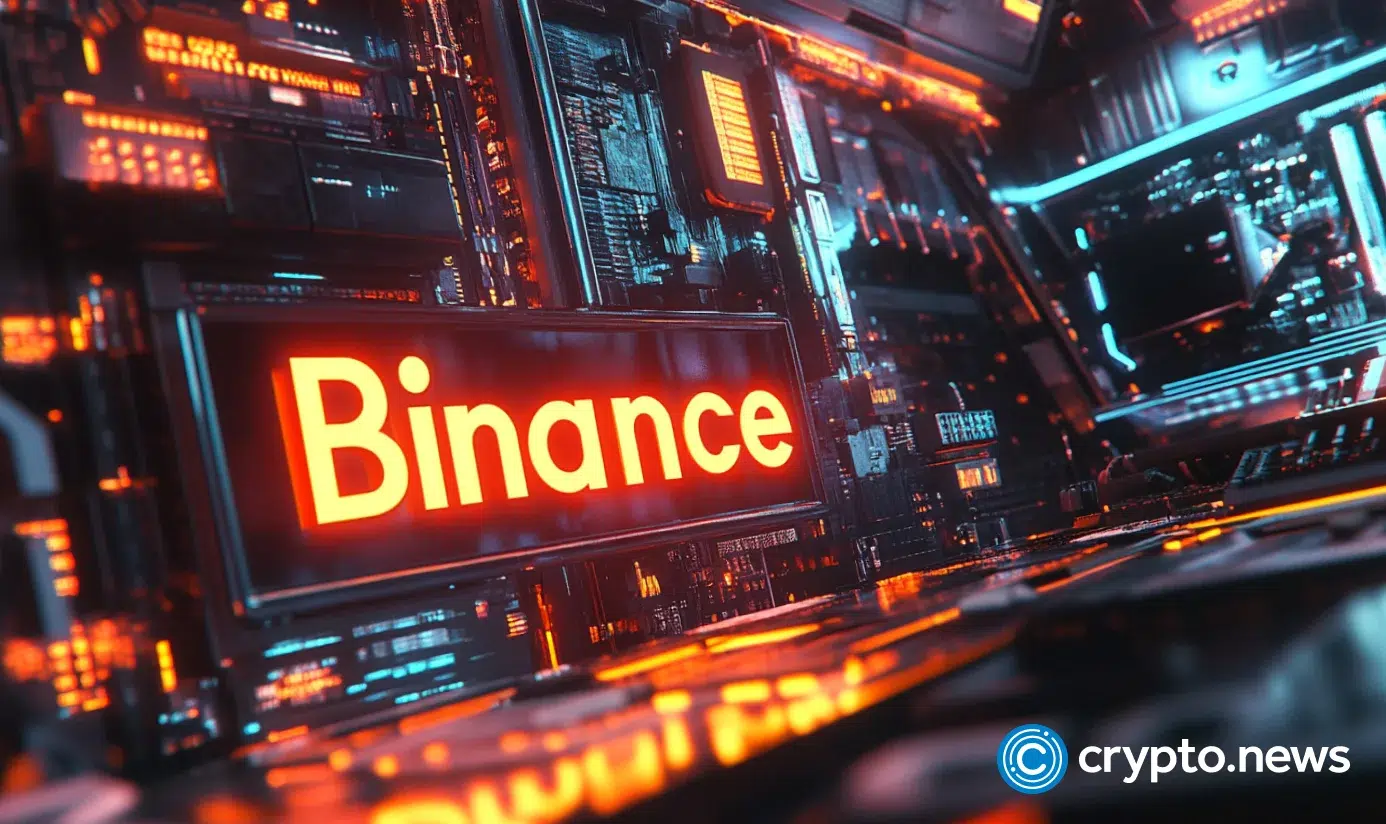
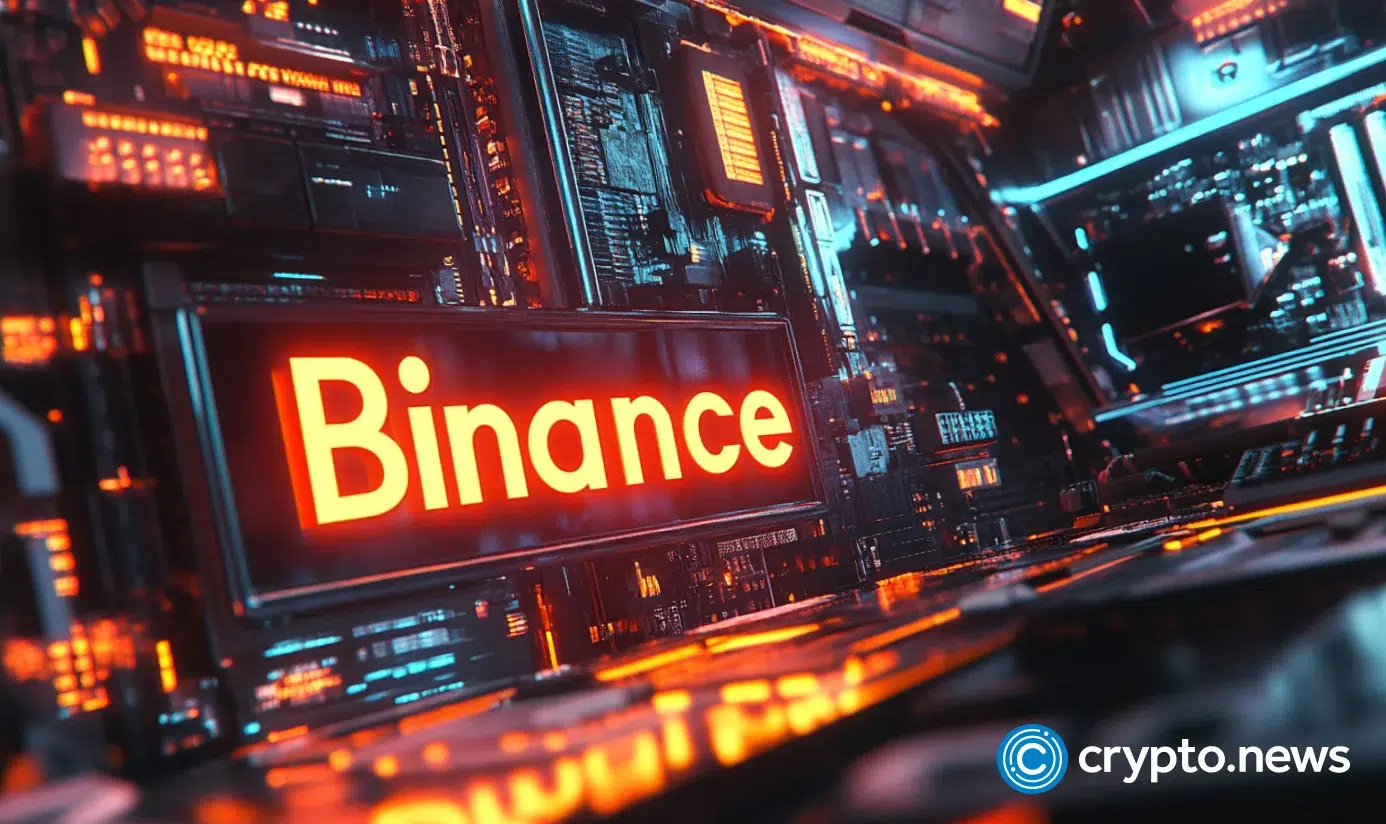
Binance, the world’s largest cryptocurrency exchange, is plotting a return to the U.S. based on newfound ties with the Trump family.
According to the Wall Street Journal, executives from Binance met with U.S. Treasury officials last month to request the removal or reduction of a federal monitorship that has overseen the exchange’s compliance with anti-money-laundering laws since it pled guilty in 2023 and paid a record $4.3 billion fine.
Canada also fined Binance, but the penalty was much lower at $4.3 million.
At the same time, Binance has been exploring a business deal with World Liberty Financial (WLFI), a DeFi venture that claims to be “inspired” by President Donald Trump and has plans to launch a dollar-pegged stablecoin called USD1. Listing the token on Binance could generate billions for the Trumps, who are currently losing millions on the WLFI venture.
Trump and his family control more than 60% of the WLFI project.
The WSJ reports that Binance’s budding alliance with the Trump family stems from a private gathering in Abu Dhabi last December. Binance founder Changpeng Zhao met with Eric Trump and Steve Witkoff, who helped co-found World Liberty.
Fast-forward to now: The quid pro quo for the Trump administration offers a chance to roll back strict oversight; for the Trumps, Binance’s massive global reach — 250 million users and $65 billion in daily volume— could bolster the family’s crypto ambitions.
Crypto.news reached out to WLFI, but a spokesperson did not respond immediately with a comment.
The Trump administration has already made favorable moves toward the exchange, including disbanding a Department of Justice crypto enforcement unit.
Internally, Binance also seeks a presidential pardon for Zhao, who served four months in prison for violating U.S. anti-money laundering and sanctions regulations.
A Binance spokesperson did not respond to a request for comment.
Meanwhile, Trump representatives have reportedly discussed buying a stake in Binance.US, the exchange’s struggling American arm, and using Zhao’s connections to deepen the partnership.
The situation spotlights the unusual overlap between past enforcement targets and a White House now open to alliances with crypto bigwigs. With Trump — himself a convicted felon — already pardoning figures like BitMEX co-founder Arthur Hayes, the new crypto era in Washington, D.C., seems poised to reward the very “bad actors” the sector’s leaders complain about.
Source link
24/7 Cryptocurrency News
Crypto Market Rebounds As Donald Trump Exempts Tech From Tariffs On China
Published
2 days agoon
April 12, 2025By
admin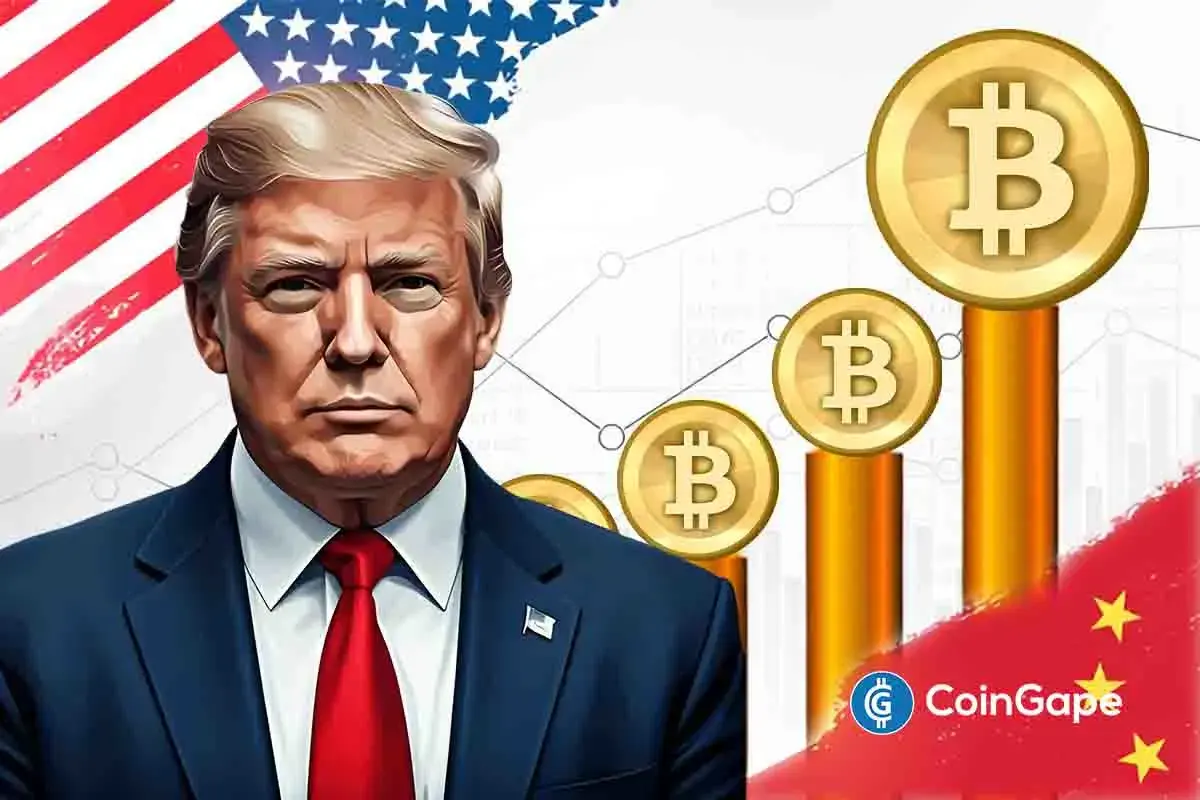
The crypto market, led by Bitcoin, has rebounded following Donald Trump’s decision to exempt tech products from tariffs he has imposed on China and other countries. Market participants see this as a positive amid the ongoing trade war between the US and China.
Crypto Market Rebounds As Donald Trump Exempts Tech Products From Tariffs
The crypto market has surged following Donald Trump’s move to exempt tech products from reciprocal tariffs imposed on China and other countries. According to a CNBC report, the US president has exempted phones, computers, and chips from the new tariffs.
The Bitcoin price surged past the $85,000 market following this report, with other altcoins also recording significant gains. This development is undoubtedly bullish for the market as it reduces the severity of the tariffs that Trump imposed on almost all countries earlier this month.
Moreover, this represents a big win for the stock market, with companies like Apple the biggest beneficiaries of this exemption. As such, it is normal for the crypto market to rebound alongside, given Bitcoin’s correlation with stocks.
Meanwhile, this move could also mark the beginning of the end of the ongoing trade war between the US and China. As CoinGape reported, China yesterday announced a 125% tariff on US imports following the latter’s decision to impose 145% tariffs on Chinese goods.
Trump already mentioned that he is looking forward to making a deal with China, which is also positive for the market. Bitcoin and altcoins could witness another massive rally once that happens.
Correctional Phase Could Soon Be Over
In a recent X post, crypto analyst Kevin Capital suggested that the correctional phase could soon be over for the crypto market. He noted that this phase has so far gone according to plan. However, he warned that there is still a lot of work to be done.
The analyst believes it is important for the Bitcoin price to clear the $89,000 level before market participants start feeling good. He added that the macro side also needs to line up for things to start looking really good for the market.
The macro side looks to be progressing well as the Federal Reserve recently revealed plans to provide liquidity if necessary. Meanwhile, the latest CPI and PPI inflation data came in lower than expectations, which could also motivate the Fed to start easing monetary policies.
Crypto analyst Rekt Capital warned that Bitcoin isn’t there yet. He stated that it would be momentous to weekly close above $86,000, as this would potentially set BTC up for a repeat of a mid-2021 breakout. However, the flagship crypto is still away from the bullish weekly close of $86,811.
Boluwatife Adeyemi
Boluwatife Adeyemi is a well-experienced crypto news writer and editor who has covered topics that cut across several topics and niches. Boluwatife has a knack for simplifying the most technical concepts and making it easy for crypto newbies to understand. Away from writing, He is an avid basketball lover, a traveler and a part-time degen.
Disclaimer: The presented content may include the personal opinion of the author and is subject to market condition. Do your market research before investing in cryptocurrencies. The author or the publication does not hold any responsibility for your personal financial loss.
Source link


Disclosure: The views and opinions expressed here belong solely to the author and do not represent the views and opinions of crypto.news’ editorial.
Chinese companies are leading the AI arms race. Chinese politician and computer scientist Lou Qinjian said as much, recently commending DeepSeek for their accomplishments: “DeepSeek adheres to an open-source approach and promotes the widespread application of AI technology globally, which contributes Chinese wisdom to the world,” he said.
“Through the rise of companies like DeepSeek, we can see the innovation and inclusiveness of China’s technological development.”
In February, at the Artificial Intelligence Action Summit in Paris, US Vice President JD Vance made clear where the Trump Administration stands on artificial intelligence. He said that, first and foremost, the Trump administration will ensure that American AI technology remains “the gold standard” worldwide and that US companies remain the partner of choice for international companies and foreign countries.
The Vice President argued that excessive regulation in the AI sector would kill the nascent industry, and that the administration would encourage pro-AI growth policies. “And I’d like to see that deregulatory flavor, making its way into a lot of the conversations at this conference,” he said. Vance also made it clear that AI should be free of ideological bias and that “American AI will not be co-opted into a tool for authoritarian censorship.”
Finally, the Trump administration will safeguard a pro-worker growth path for AI so it can create jobs in the United States. Vance also brought up the notion of foreign adversaries weaponizing AI software to rewrite history, surveil users, and censorship. As Vance stated:
“This is hardly new, of course, as they do with other tech. Some authoritarian regimes have stolen and used AI to strengthen their military intelligence and surveillance capabilities, capture personal data, and create propaganda to undermine other nations’ national security.”
He warned conference attendees against partnering with such regimes. “From CCTV to 5G equipment, we’re all familiar with cheap tech in the marketplace that’s been heavily subsidized and exported by authoritarian regimes,” he said. “But as I know, and I think some of us in this room have learned from experience, partnering with them means chaining your nation to an authoritarian master that seeks to infiltrate, dig in, and seize your information infrastructure.”
Under the hood of DeepSeek
DeepSeek shocked global markets in January with low-cost models that made it seem like US companies were now behind in the AI arms race. The AI lowered the costs of developing reliable AIs, proving itself to be a powerful and cost-efficient open-source language model.
It changed the way we view how much capital and computational resources are needed to develop AI. Researchers across the Western world are now left playing catch-up, studying DeepSeek’s technical advances and social implications.
There are clear benefits to DeepSeek. For instance, startups without the deep pockets of Google and OpenAI can now compete in the AI sector. AI models can do more with less in the post-DeekSeep world. The company claims it took a mere $6 million using 2,000 Nvidia H800 graphics processing units (GPUs) versus the $80 million to $100 million cost of GPT-4 and the 16,000 H100 GPUs needed for Meta’s LLaMA 3.
The Hangzhou-based startup’s AI model employs reasoning capabilities that allow smaller models, whereas other AIs have had to employ larger models. It also uses reinforcement learning, eliminating the need for supervised fine-tuning. Moreover, DeepSeek’s multi-head latent attention (MHLA) mechanism decreases memory usage to 5%, down from 13%, in earlier AI methods.
DeepSeek raises privacy concerns and questions regarding data-sourcing and copyright. DeepSeek is open-weighted, not open source. Open source models share the full source code and data, and open weight models share trained weights but not the code. Therefore, the exact source code used to train the models is not available.
Due to DeepSeek’s open weight model, it is unknown what its sources are. This seems to be the way most AI companies operate. DeepSeek made public its R1 training and open weight models, which will allow other AI developers to copy and build on the model, but not its sources.
DeepSeek and geopolitics
A race for AI dominance between China and the US has come into focus, while Russian capabilities on the matter remain a secret. Sberbank—Russia’s largest state-owned bank—has revealed its intentions to collaborate with Chinese researchers on AI projects. Russia and China, which share what they call a “no limits” strategic partnership, have long talked about AI cooperation—including in military applications—but little is publicly known about its depth or scope.
Sberbank, under CEO German Gref, once a Soviet-style former state savings bank burdened by onerous bureaucracy, is today one of Russia’s leading players in artificial intelligence. It released its GigaChat model in 2023. “Sberbank has many scientists. Through them, we plan to conduct joint research projects with researchers from China,” Sberbank First Deputy CEO Alexander Vedyakhin told Reuters.
As the AI arms race heats up, the benefits of open source innovation come to the forefront. Little flowers bursting through the concrete all around the world, coming up with cool tech that is open-sourced and decentralized.
Manouk Termaaten
Manouk Termaaten is the founder and CEO of Vertical Studio AI.
Source link

Dogecoin Follows This Blueprint, Says Crypto Analyst

Metaplanet Buys Additional ¥3.8 Billion Worth Of Bitcoin

Crypto Trader Unveils Massive Bitcoin Price Target Amid Extended BTC Bull Market – Here’s His Outlook

Is it possible to make $1m with crypto?

Japan’s Metaplanet Buys Another $26M in Bitcoin Amid Tariff Market Uncertainty

Has Ethereum Price Bottomed? 3 Reason Why ETH Could Crash More
Michael Saylor Teases New Bitcoin Buy After Strategy’s $7.69 Billion Q1 BTC Buying Spree

Crypto markets ‘relatively orderly’ despite Trump tariff chaos: NYDIG

Fartcoin ‘Hot Air Rises’ — $1.50 Just A Whiff Away

What happened to the RWA token?

Crypto Strategist Sees Solana-Based Memecoin Surging Higher, Says One AI Altcoin Flashing Strong Chart

Mantra Team Responds As The OM Token Price Crashes Over 80% In 24 Hours

This Week in Crypto Games: Gaming Tokens Crash Out, Eve Frontier Opens Up

Commerce Secretary Lutnick walks back tariff relief on electronics

Gold ETF Inflows Hit Three-Year High as PAXG, XAUT Outperform Wider Crypto Market

Arthur Hayes, Murad’s Prediction For Meme Coins, AI & DeFi Coins For 2025

Expert Sees Bitcoin Dipping To $50K While Bullish Signs Persist

Aptos Leverages Chainlink To Enhance Scalability and Data Access

Bitcoin Could Rally to $80,000 on the Eve of US Elections

Crypto’s Big Trump Gamble Is Risky

Institutional Investors Go All In on Crypto as 57% Plan to Boost Allocations as Bull Run Heats Up, Sygnum Survey Reveals

Sonic Now ‘Golden Standard’ of Layer-2s After Scaling Transactions to 16,000+ per Second, Says Andre Cronje

Ripple-SEC Case Ends, But These 3 Rivals Could Jump 500x

Has The Bitcoin Price Already Peaked?

A16z-backed Espresso announces mainnet launch of core product

The Future of Bitcoin: Scaling, Institutional Adoption, and Strategic Reserves with Rich Rines

3 Voting Polls Show Why Ripple’s XRP Price Could Hit $10 Soon

Xmas Altcoin Rally Insights by BNM Agent I

Blockchain groups challenge new broker reporting rule

I’m Grateful for Trump’s Embrace of Bitcoin
Trending

 24/7 Cryptocurrency News5 months ago
24/7 Cryptocurrency News5 months agoArthur Hayes, Murad’s Prediction For Meme Coins, AI & DeFi Coins For 2025

 Bitcoin3 months ago
Bitcoin3 months agoExpert Sees Bitcoin Dipping To $50K While Bullish Signs Persist

 24/7 Cryptocurrency News3 months ago
24/7 Cryptocurrency News3 months agoAptos Leverages Chainlink To Enhance Scalability and Data Access

 Bitcoin5 months ago
Bitcoin5 months agoBitcoin Could Rally to $80,000 on the Eve of US Elections

 Opinion5 months ago
Opinion5 months agoCrypto’s Big Trump Gamble Is Risky

 Bitcoin5 months ago
Bitcoin5 months agoInstitutional Investors Go All In on Crypto as 57% Plan to Boost Allocations as Bull Run Heats Up, Sygnum Survey Reveals

 Altcoins2 months ago
Altcoins2 months agoSonic Now ‘Golden Standard’ of Layer-2s After Scaling Transactions to 16,000+ per Second, Says Andre Cronje

 Price analysis5 months ago
Price analysis5 months agoRipple-SEC Case Ends, But These 3 Rivals Could Jump 500x


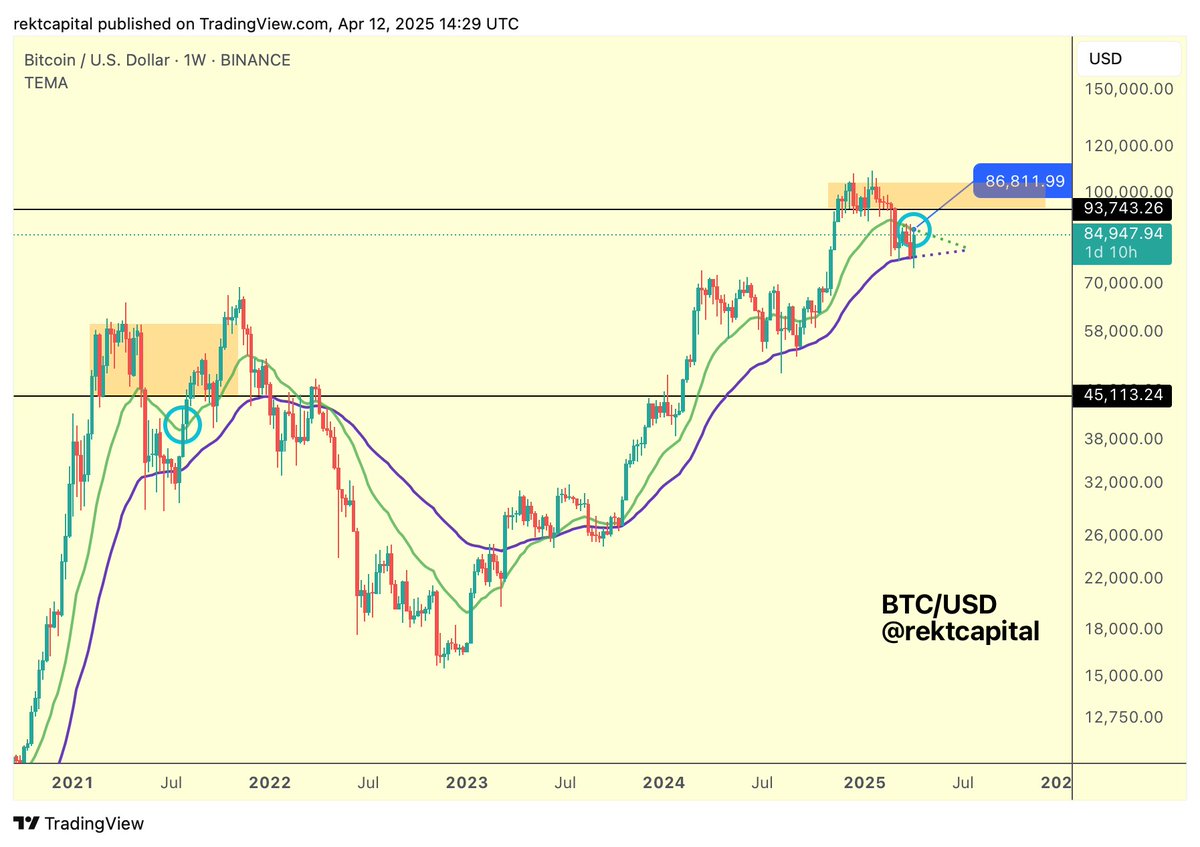

✓ Share: